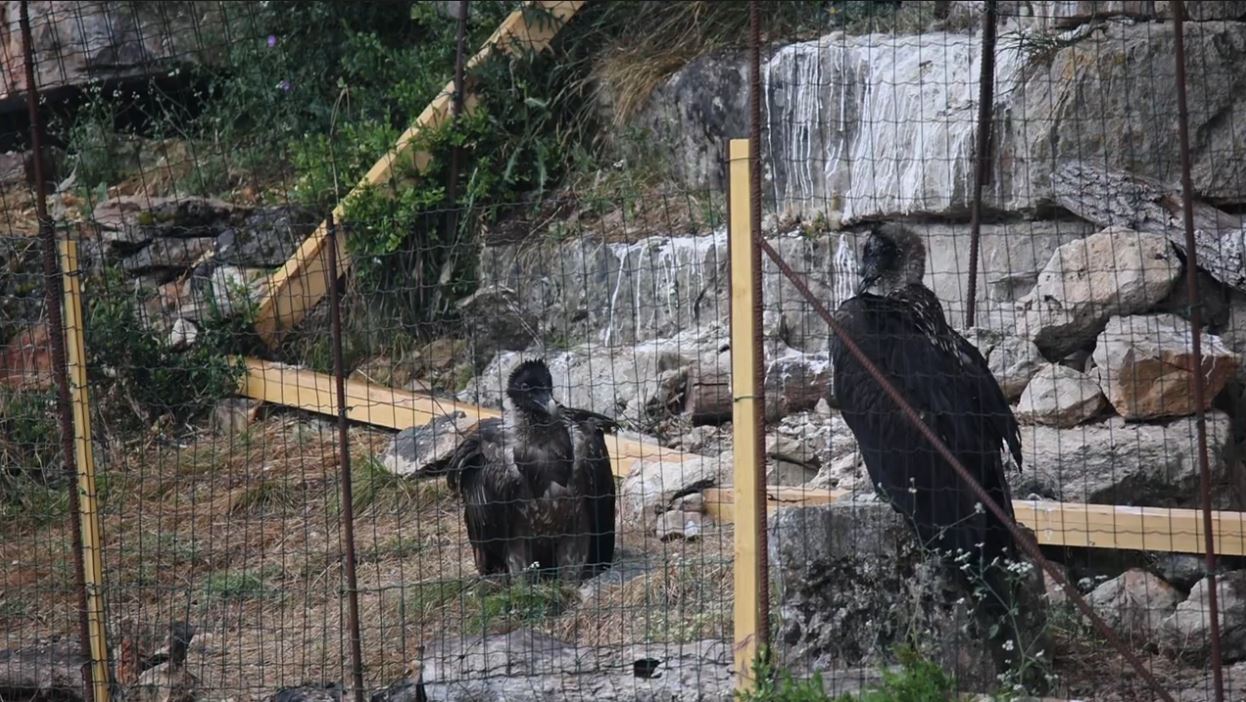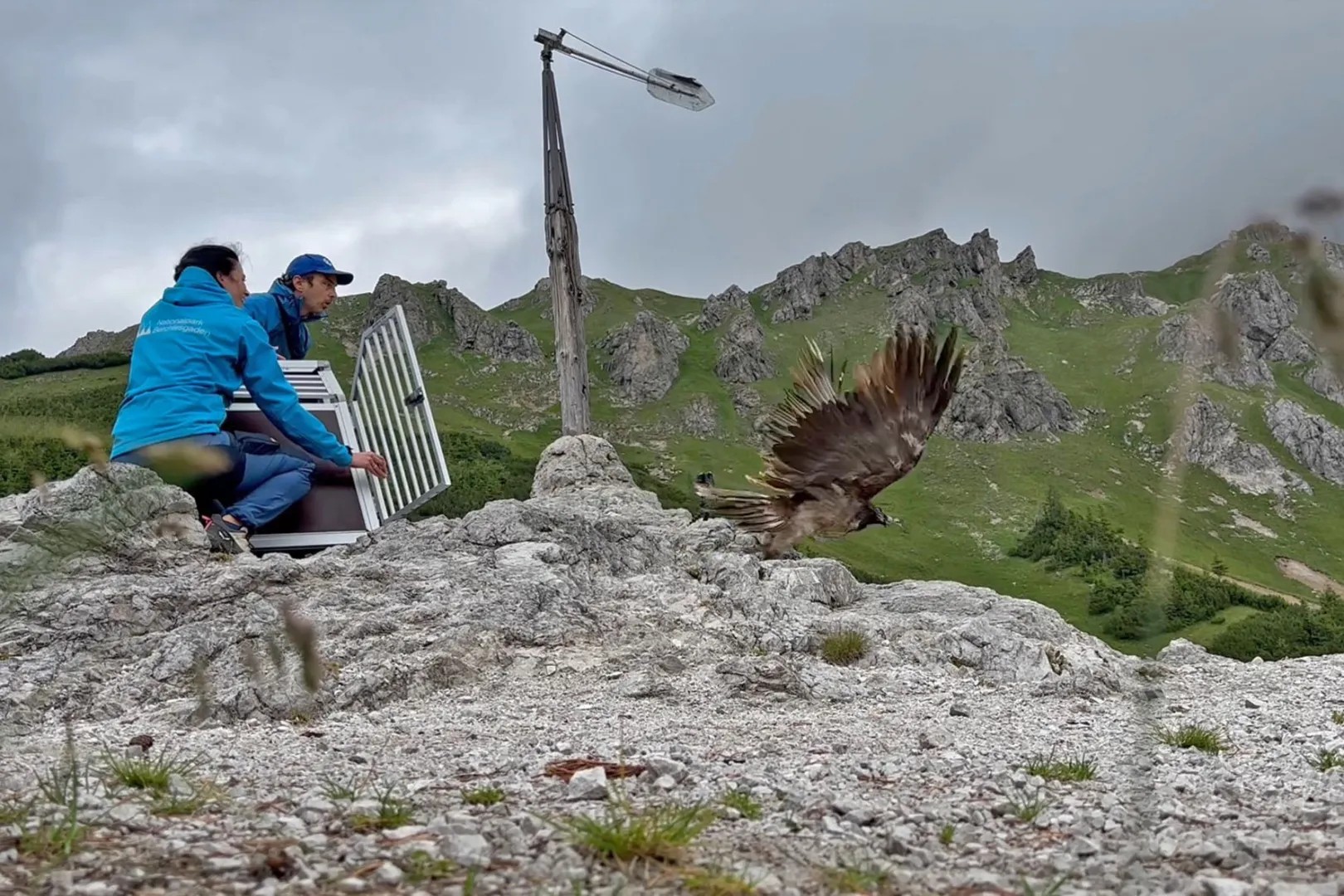
The oldest female present in the bearded vulture captive breeding network (coordinated by the VCF, on behalf of EAZA, for reintroduction projects in nature) died last month, aged 49, at the bearded vulture captive
breeding center in Guadalentin (Andalucía, Spain).
BG132, as it was known, has died because of senile decay on the 8th January. She was also almost blind (cataracts).This female, together with its first male partner, arrived as adult at Dresden zoo in 1973. They were kept together with other raptors in a huge aviary till 1987. When they were given their own aviary, they started to breed with success, producing 8 chicks, of which 5 have been released in the Alps reintroduction project. Unfortunately the male died in 2002 and one year later the female was transferred to Guadalentín.
In 2005 she laid its last egg there, from which a chick hatched. That year we noticed she started with vision problems – during the incubation period, when she left the nest, she couldn’t find it easily again when coming back. With one claw she would try to find the egg, combing smoothly the wool! We then decided to light the nest with a headlight, which helped her. This egg was finally given to “Gualay” (our imprinted male) to finish the incubation.
This female, as well as the old pair that died in Alpenzoo Innsbruck last year (see http://www.4vultures.org/news/news-2014-1st-quarter/, news 11.01.2014) died because of senile decay at around 50 years old. Such longevity is rare, and it is not a surprise that the oldest birds recorded lived in Alpenzoo Innsbruck (750m asl) or in Guadalentin (1300 m asl) – both centers are situated at high altitude, and are aspergillus-free. This fungus is the main cause of death in captive bearded vultures, but it´s pathogenicity decreases in altitude, and reaches zero above 900 m asl. As a mountain species, the bearded
vulture did not develop an immune resistance against this kind of infection. In all the other zoos/centres, located at lower altitudes, curators and handlers need to try to prevent this common infection, by offering the birds the best housing conditions and food.



